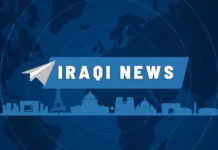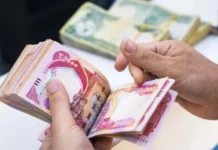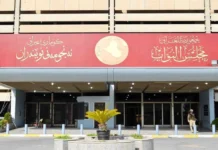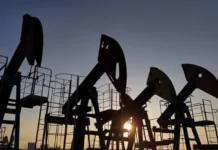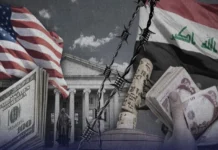An Expert Warns Of A Return To Rising Inflation Rates Globally.. What Is The Connection To The Iraqi Markets?
Money and business Economy News – Baghdad Economist Ziad Al-Hashemi warned on Monday of the possibility of inflation rates rising again globally with the continuation of Houthi attacks on commercial shipping vessels in the Red Sea region.
Al-Hashemi said in a post on the Ax website that there are “fears of inflation rates rising again globally with the continuation of Houthi attacks on commercial shipping vessels in the Red Sea region for the sixth consecutive month, and Iraqi markets are on the list of those affected!”
He added, “The global economy has begun to feel the pressures of rising costs and prices as a result of the continued disruption of transport chains between Asia and Europe, with the Houthi attacks continuing for the sixth month and the diversion of shipping routes away from the Red Sea.
Shipping prices have quadrupled on a monthly basis from $1,890 in the first month of 2024 to more than $8,000 during the seventh month, per FEU container.”
He stated that “during the past period, many international economic and financial experts have downplayed the effects of the disruption of maritime transport routes due to Houthi attacks, and their negative repercussions on the prices of goods and services in Western economies, especially the consumer price index (one of the most important indicators for assessing the path of inflation),
but with the continuation of security risks and threats in the Red Sea region, the continued rise in transport prices, and the imminent expiration of many long-term contracts with fixed freight rates, many convictions and analyses have changed.”
Al-Hashemi stressed, “We have growing concern that the large increases in shipping prices will lead to significant increases in the prices of goods and products in Western markets, which will put pressure on inflation rates that have gradually begun to decline and reach the targeted levels.”
He added, “These price pressures may lead to inflation rates rising again, which means that the efforts and endeavours of central banks to curb inflation in the West have faltered, and this will greatly hinder and delay the start of the process of reducing interest rates, which global markets are eagerly awaiting.”
He pointed out that “concerns in the markets continue and are increasing with the continuation of military operations, the disruption of transportation routes, and the rise in transportation prices to significant levels, especially with the absence of light at the end of the tunnel of this crisis, and eyes will focus more on inflation rates, and waiting to see how things will develop.”
Regarding the impact on the Iraqi markets, Al-Hashemi confirmed that they are “highly affected by changes in shipping prices coming from Asia, and increases in shipping prices can directly and quickly affect the prices of imported goods, and this may be one of the reasons for the rise in commodity prices in the Iraqi markets during the first half of 2024.”
189 views 07/22/2024 – https://economy-news.net/content.php?id=45479
Oil And Gas Law Stuck In Parliament’s Drawers
Iraq 08:07 – 2024-07-23 Political differences and the absence of consensus since the first session of the House of Representatives have kept the draft oil and gas law stuck in the parliament’s drawers.
In each session, conflicts have prevented its approval in its final form. Five parliamentary sessions have passed and the law has not been released to this day.
The parliamentary Oil, Gas and Natural Resources Committee expects the law to be postponed to the next parliamentary session due to ongoing disagreements.
Ali Al-Lami, a member of the parliamentary Oil and Gas Committee, says that one of the reasons for obstructing the approval of the Oil and Gas Law is the ongoing disagreements between the governments of Baghdad and Erbil.
He adds that his committee sent the law to the government at the beginning of the current parliamentary session, but we do not expect it to be approved during the current session, as it requires study and reading, suggesting that the law will be postponed to the next parliamentary session.
For her part, Zainab Al-Moussawi, a member of the parliamentary oil and gas committee, says that the law is almost complete, and to a high degree, but there are some objections regarding some points, which are summarized in the delivery of oil revenues and exploited and unexploited natural resources to Baghdad.
Al-Moussawi adds that the oil and gas law is concerned with organizing the country’s natural resources and exploiting the largest possible amount of undiscovered oil fields.
She points out that the law will also contribute to achieving self-sufficiency in oil derivatives and optimal exploitation of wasted natural resources, estimated at hundreds of billions of dollars, which contribute to diversifying the state’s financial resources.
The draft of the oil and gas law in Iraq available to parliament stipulates that the responsibility for managing the country’s oil fields should be entrusted to a national oil company.
Prime Minister Mohammed Shia al-Sudani had previously confirmed that the draft oil and gas law is one of the basic and important laws, and represents a factor of strength and unity for Iraq. It has been pending for years, at a time when the country is in dire need of its legislation and to benefit from this natural wealth in all fields and sectors, in addition to the contribution of the legislation of the law in solving many of the outstanding problems.
He explained that there are governorates that have not invested their wealth, which is a negative thing for development efforts in all their paths. https://kirkuktv.net/AR/Details/21690
IMF: Iraq, Qatar Increase Their Gold Holdings
Money and business Economy News – Baghdad Data from the International Monetary Fund showed an increase in gold reserves in Iraq and Qatar.
According to these data, in May 2024, Iraq increased its gold reserves by 2,644 tons to 148,305 tons.
The data showed that Qatar increased its gold reserves by 3,112 tonnes to 106,423 tonnes in June 2024, according to Reuters. 93 views 07/23/2024 – https://economy-news.net/content.php?id=45500
3 Years Without Achievement.. Iraq Wastes Its Renewable Energies And There Is No “Seriousness” In Exploiting Them
Economy News – Baghdad In 2021, the Iraqi government launched the Solar Energy and Emissions Reduction Initiative, and in 2022 confirmed its support, but it does not appear to be effective or fully completed to date.
The initiative stipulates the installation of solar energy systems on the roofs of state institutions, and the amount allocated for it is 90 billion Iraqi dinars for five years to support the national grid.
The Iraqi government sought to solve the electricity problem by contracting with major countries and companies in the field of renewable energy, including signing agreements with Arab and foreign companies to establish solar power projects in Iraq, but its efforts faltered, which keeps the wealth of solar energy under-exploited.
Energy expert Murtadha Hatem says, “Launching an initiative to support energy and reduce emissions through solar energy in Iraq is an important step towards achieving sustainable development and preserving the environment.”
He added, “Relying on solar energy contributes to reducing dependence on fossil fuels, which ensures greater sustainability of energy sources, and reduces price fluctuations associated with oil prices.”
He explains that “solar energy is a clean source of energy that helps reduce greenhouse gas emissions and improve air quality, which is important in confronting climate change,” indicating that “reducing dependence on energy imports from abroad and increasing local production enhances the country’s energy security.”
He added, “Developing solar energy projects can provide many job opportunities in the fields of design, installation, and maintenance, in addition to stimulating innovation and investment in clean technology.”
Hatem confirms that “Iraq has abundant solar resources that can be exploited to provide sustainable and cheap energy, which contributes to improving the energy infrastructure.”
He explained that “launching solar energy initiatives reflects the government’s commitment to shifting towards a green and sustainable economy, which enhances Iraq’s position in the international community as an environmentally responsible country.”
Journalist and renewable energy expert Ali Naji says, “All the systems that were built in all their forms on the roofs of state institutions before this initiative were not successful and almost failed, including those installed on departments related to renewable energy.”
He added, “There are instructions from the Civil Defense that specify the hours of use of renewable energy during official working hours only, which means there are losses in operating solar systems from the moment of sunrise until the moment of the start of official working hours and connecting the system to the national grid,” explaining, “Generation losses from the end of working hours until sunset, due to the national grid being cut off after the end of working hours, in addition to holidays and occasions when it is out of service.”
He added, “Installing these systems on the roofs of buildings will hinder the process of roof maintenance in the event of damage,” stressing that “these departments do not have sufficient personnel to manage and maintain these solar systems, and even if they are trained, partial training is not sufficient and does not cover the requirements of these systems.”
Regarding the obstacles that hinder the success of the initiative, Ali Naji explains that “these systems should be placed on the outskirts of cities in the form of farms (solar energy farms) divided into five regions, for example, between the northern, central and southern regions, as is the case in Egypt, the Emirates and others,” noting that “the number of employees to maintain them will be less and easier to control, in addition to these farms being planted with trees, which will increase afforestation operations.”
He added, “The systems are connected in two ways: to the national grid, and also to charge batteries to support areas in the event of a lack of electricity or a lack of electricity supply.”
Iraq, whose infrastructure is in shambles after decades of conflict and chronic corruption in public administrations, needs more than 32,000 megawatts to cover its needs, but the country’s power plants produce only about 24,000 megawatts.
On March 12 of last year 2023, Oil Minister Hayan Abdul-Ghani announced that preparations were underway to launch the first solar energy project in Iraq, with a capacity of about 1,000 megawatts, which coincided with the state’s efforts to enhance its investments in the renewable energy and natural gas sector.
Despite this need, renewable energy remains underutilized, with Iraq enjoying just over 3,000 hours of sunshine out of 8,700 hours per year. Meanwhile, more than 98 percent of Iraq’s electricity is generated by fossil fuels, according to a World Bank report.
To encourage residents to install solar energy systems, the Central Bank of Iraq announced in 2022 the allocation of one trillion dinars (about $750 million) to secure subsidized loans for the private sector, including homes and private companies. But according to renewable energy specialists, this project is faltering due to the lack of cooperation from banks.
Over the past years, Iraq has relied on Iran for electricity supplies, importing 1,200 megawatts, as well as gas fuel to feed local power plants.
This year, the Iraqi News Agency quoted the authority’s advisor, Rahim al-Jaafari, as saying, “There are serious and practical steps to produce electricity from solar energy, as a plan has been developed to produce about 12,000 megawatts by the end of 2030,” adding that “it has been approved by the Council of Ministers.”
The Ministry of Environment has identified 3 types of pollution, including waste, that represent a challenge during the current stage in Iraq, calling for the adoption of modern technologies and renewable and clean energy as an alternative to fossil fuels.
85 views 07/23/2024 – https://economy-news.net/content.php?id=45489

